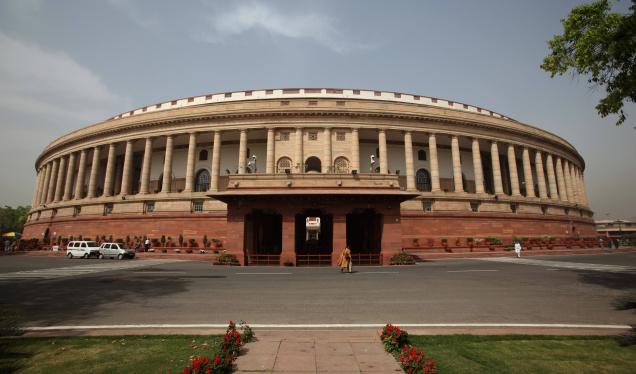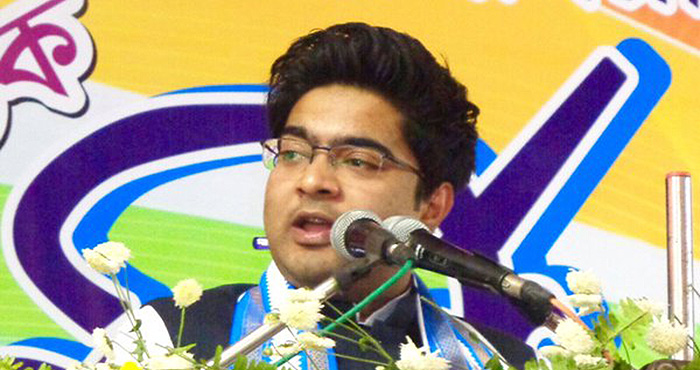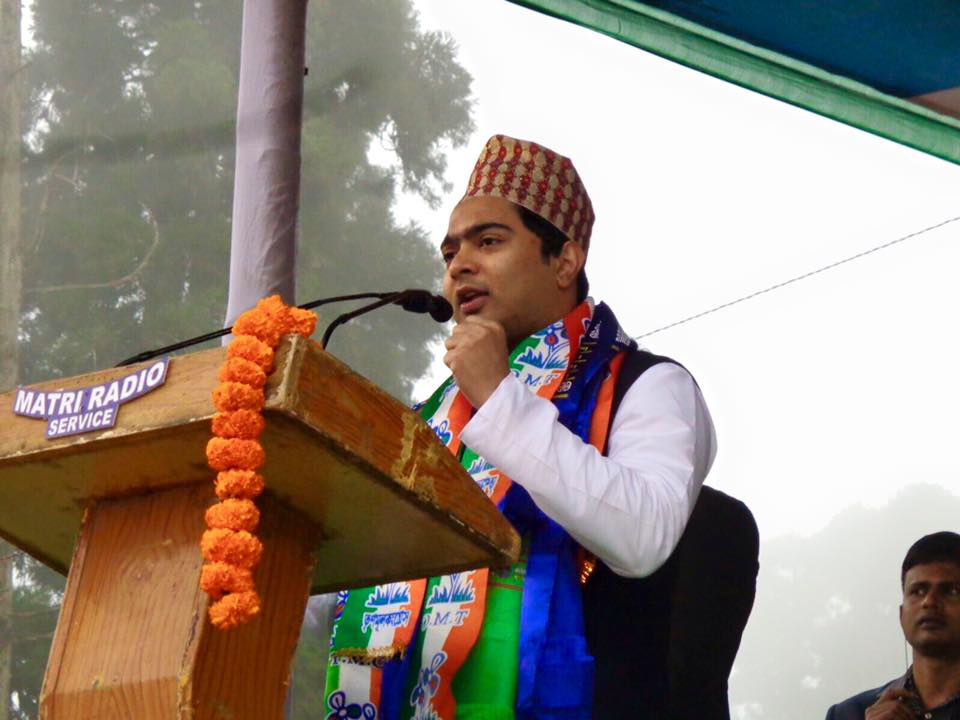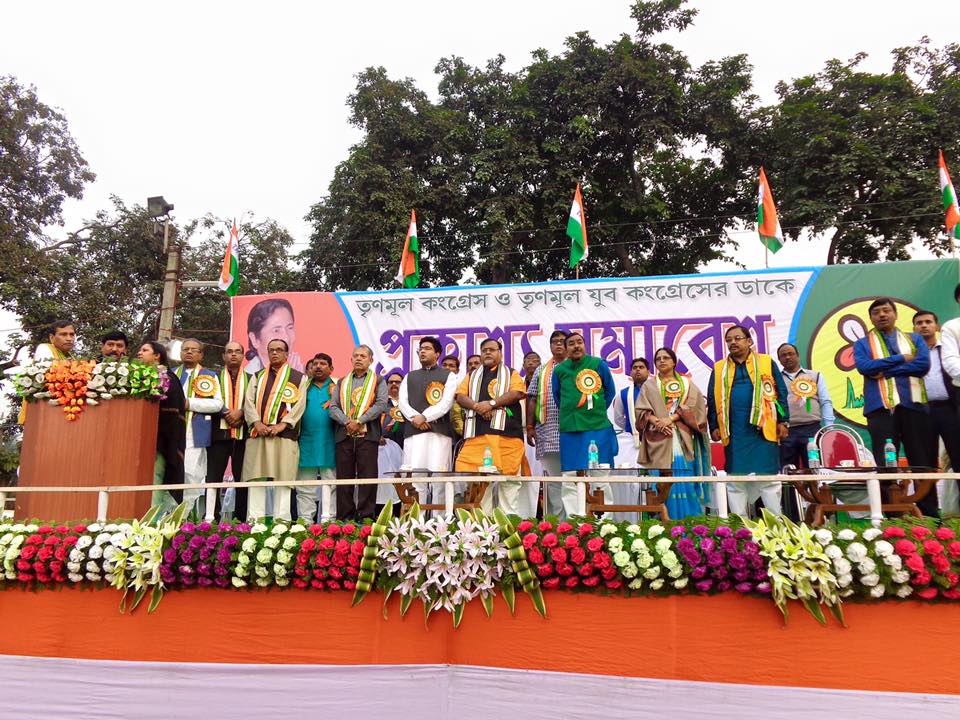As someone who has been a teacher at universities for three and a half decades, I hope that my colleagues in this august House will have the patience to listen to me. This is after all a forum for debate and discussion as the President reminded us only yesterday.
Just over a month ago a Dalit research scholar at Hyderabad Central University, Rohith Vemula tragically took his own life. The death of a bright young Dalit scholar is not new in Indian universities. The Thorat Committee that was appointed in 2007 to investigate the growing number of deaths among students in elite institutes discovered that out of the 23 suicide cases, 19 were Dalits, 2 were tribals and 1 was Muslim. This alarming figure should have raised several questions of academic justice and freedom that our nation needed to seriously needed to ponder.
Rohith Vemula left us a poignant message when he chose to leave this unfair world. In the only letter he was going to write, he told us, “I always wanted to be a writer; a writer of science like Carl Sagan. I loved science, stars.” Rohith today is not dead. He lives up in the Heavens, as a star of purest race serene to serve as a beacon light to posterity. Rohith’s tragedy should have stirred our collective conscience, including that of our government. Unfortunately we have a heartless government that refuses to listen to the cries of despair coming from the marginalised sections of our society. Instead of assuring social justice to all, the ruling party wishes to use the student unrest in our universities to claim a monopoly on nationalism and tar all of their critics with the brush of anti-nationalism.
Madam Speaker, I am not a communist; in fact I won the seat in the Lok Sabha by defeating a prominent communist candidate. But I stand today in support to the right to freedom of expression by young students who maybe inspired by Marx as well as Ambedkar.
Madam Speaker, I am a nationalist. I believe in a kind of nationalism that instils a feeling of selfless service in our people and inspires their creative efforts. But I know that nationalism can be a truly Janus faced phenomenon and I deplore the brand of nationalism espoused by the members of the treasury benches that I find narrow, selfish and arrogant.
Following the unrest in Hyderabad, there were incidents that took place in Jawaharlal Nehru University, a university named after our great first Prime Minister. Earlier this month, at one or two events on that campus very disturbing slogans were raised and deeply troubling posters were put up. We unequivocally condemn those slogans and posters.
However we strongly oppose the attempts being made to portray an entire university as a hub as anti-national activities and the onslaught of state forces on academic freedom. We are horrified to witness the scenes of students, teachers and journalists being assaulted within the court premises of Patiala House. It was not the students madam speaker but the black-coated storm troopers affiliated to the ruling party defiled and desecrated the image of Mother India.
The reverberations of the JNU incidents where felt in my home state, especially in Jadavpur University. There too unfortunate slogans were heard in the streets around the campus but by contrast with what happened in the nation’s capital, the West Bengal state administration led by Mamata Banerjee and the University administration knew how to defuse tension and to not unnecessarily escalate the crisis.
After all, the idea of India is not so brittle as to crumble at the echo of a few slogans. You cannot be a true nationalist if you are opposed to freedom. It is not a crime to seek freedom from caste oppression, freedom from class exploitation, freedom from gender discrimination.
We must give our students and youth the freedom to think, the freedom to speak, the freedom to be idealistic and yes the freedom to make mistakes and learn from them. What must be avoided at all costs is the criminalisation of dissent.
I heard the speech given by Kanhaiya Kumar on YouTube. I agreed with many things that he said and I disagreed with some of things that he said. I agreed with him when he extolled Ambedkar’s commitments to constitutional rights and constitutional morality. I agreed with him when he expressed admiration for our great revolutionaries Bhagat Singh, Ashfaqullah, Sukhdeb and Rajguru.
He of course said that the RSS took no part in our freedom struggle; there too, he was right. But as a teacher I would have liked to have a discussion with him about history and I would have pointed out to him that even the Communists had actually not taken part in the freedom struggle and also betrayed the freedom struggle at crucial moments – as in 1942 and the Azad Hind Movement led by Netaji Subhas Chandra Bose.
I condemn the acts of vigilantism by self-appointed protectors of the nation which foments a climate of fear. I believe that students, teachers, university personnel – all be permitted to express opinions freely, without fear, even if they conflict with the government’s political stances. The government must end the witch-hunt for anti-nationals and the shameful scapegoating of university students. We believe, this witch-hunt is meant to distract the nation from issues necessary to the nation’s development such as employment opportunities and poverty alleviation. We insist no group within the Indian polity or the diaspora is the univocal spokesperson for the nation.
History shows us that state-sponsored or state-condoned campaigns against so-called anti-nationals leads to authoritarian rule and destruction of democratic principles. If universities and students are attacked the legacy of anti-colonial freedom struggle and of democratic reconstruction is gravely undermined.
Madam Speaker, we learnt our lessons in nationalism from great figures like Mahatma Gandhi, Jawaharlal Nehru and Subhas Chandra Bose. Those of us, who are from Bengal, are also inspired by what we have been taught about patriotism and nationalism by figures like Swami Vivekananda, Rabindranath Tagore, Bipin Chandra Pal, Deshbandhu Chittaranjan Das and Aurobindo Ghosh.
I was just wondering whose definition of nationalism would be acceptable to my friends in the treasury benches. I thought I would at least try by citing before them the example of Aurobindo.
The issue of Kashmir kept coming up in the speech of Anurag Thakur. Now, it is incumbent on all of us, who are elected representatives of this House, to give a greater sense of belonging to the Union of India among the people of Jammu & Kashmir and all of our far-flung States.
The issue is about what kind of Indian Union do we want? What did Aurobindo say about this? He touched upon the secret of the difficulty of unifying ancient India and he cited ancient texts. He said that the Rishis from the Vedic age onwards propounded the ideal of Chakravarti, a uniting imperial rule, uniting without destroying the autonomy of India’s many kingdoms and peoples from sea to sea. The ruler was expected to establish suzerainty, and the full flowering of this ideal Aurobindo saw in the great epics. The Mahabharata narrates this legendary and quasi-historical pursuit of this ideal of empire which even the turbulent Shishupala is represented as accepting in his attendance at Yudhisthira’s dharmic Rajasuya sacrifice.
The Ramayana too presents such an idealised picture of such a dharma rajya – a settled, universal empire. And it is, in Aurobindo’s words, “not an autocratic despotism but a universal monarchy supported by a free assembly of city and provinces and of all the classes which are held as ideal”. He goes on to say, “According to this ideal, unification ought not to be secured at the expense of free life of the regional peoples or of the communal liberties and not therefore by a centralised monarchy or a rigidly unitarian imperial State.”
We are not a monarchy anymore but a democracy. But the nationalism that is being talked about from the other side of the House, represents centralised despotism and it is talking about rigidly imperial State.
I mentioned Rabindranth Tagore. He composed our national anthem. He was also a powerful critic of nationalism. He knew nationalism could be both a boon and a curse. He wrote beautiful patriotic songs during our Swadeshi movement. But then he also saw that nationalism could lead to the carnage of war, during the First World War in Europe. And that is why when he travelled around the world in 1916 – he first went to Japan and then the United States of America – he gave lectures on nationalism; it was a powerful critique of nationalism which were later on published by Macmillan as a book titled ‘Nationalism’.
Sometimes I fear that those who are defining nationalism so narrowly would brand Rabindranath Tagore, the composer of our National Anthem, as anti-national.
We have always have had different visions of nationhood. It is a matter of debate of what would be the ideal form of the Union of India that has animated the ideals of all the great figures I have talked about. Chittaranjan Das had his debates with Rabindranath Tagore but they were respectful towards each other. Deshbandhu Chittaranjan Das felt you could have a form of nationalism where you would be very proud of Bengal, your region, but you can be a very proud Indian nationalist. And all this has to flower, of course, in the garden of internationalism.
I know, Anurag Thakur tried to quote Netaji Subhas Chandra Bose, but he confused two great Bengali luminaries – Netaji and Rabindranath Tagore, the patriot and the poet. When I said the nationalism they (the government) represent is narrow, selfish and arrogant, I was in fact quoting from Netaji Subhas Chandra Bose. When did he utter these words? He spent a number of years in exile from 1933 to 1936 in Europe. As he was leaving Europe and coming back to India to be imprisoned here, he pointed out that the new German nationalism he had witnessed in Europe was “narrow, selfish and arrogant”.
And then in 1937, when Japan invaded China – at that time the Indian National Congress sent a medical mission to China – Netaji said we must pursue national self-fulfilment in every direction but not at the cost of imperialism and not at the cost of self-aggrandisement. We must understand that nationalism must have a liberating aspect and that is what inspired generations of our freedom fighters. But, nationalism in its narrow form can also be extremely oppressive. And this is a topic and concept on which we ought to be able to have healthy debates.
The President speaking to us yesterday pointed out that this government is trying to repeal many obsolete laws. There are many colonial era laws that need to be done away with from our statute books and I venture to suggest that the law on sedition is one of them.
This was the law that was used to persecute our freedom fighters. We ought to be able to have a discussion with our children, with our students, with our youth. We ought not to be subjecting them trumped-up charges of sedition based on morphed visual evidence. We ought not to be doing this to our students and our youth today.
I have said what I wanted to, because it is not always necessary to make a long speech in order to stand for academic freedom. Free our universities. Free our students. Let our youth dream a glorious future for our country. I had mentioned that Tagore wrote this beautiful little book on nationalism. And at the end of the book he printed an English rendering of a Bengali poem that he had composed on the last day of the 19th Century:
The last sun of the century sets amidst the blood-red clouds of the West
and the whirlwind of hatred.
The naked passion of self-love of Nations, in its drunken delirium of greed,
Is dancing to the clash of steel and the howling verses of vengeance.
Keep watch, India.
Let your crown be of humility, your freedom the freedom of the soul.
Build God’s throne daily upon the ample bareness of your poverty
And know that what is huge is not great and pride is not everlasting.
From this poem, I would simply like to underline three phrases:
Let us not be deluded by the naked passion of self-love of Nations. Let our freedom be the freedom of the souls and let us remember the admonition of our great sentinel that what is huge is not great and pride not everlasting.
Thank you.







